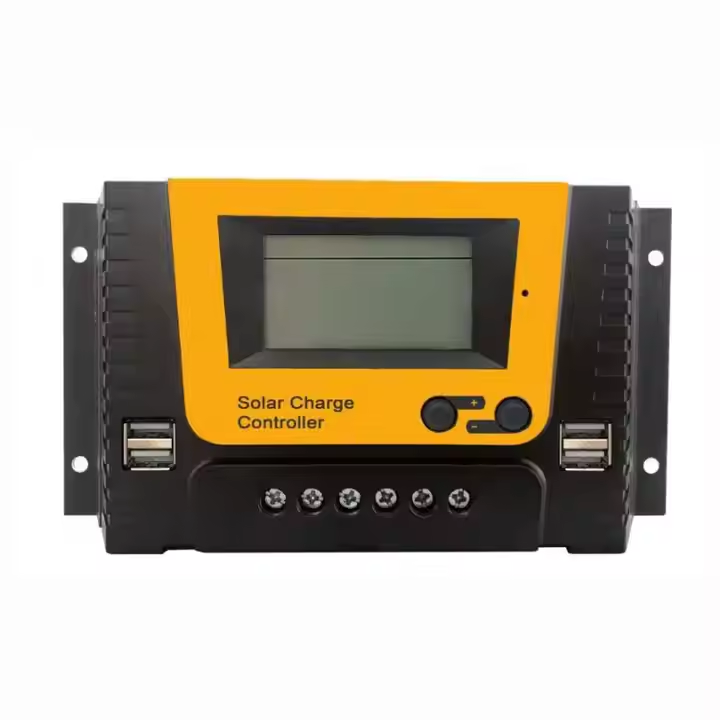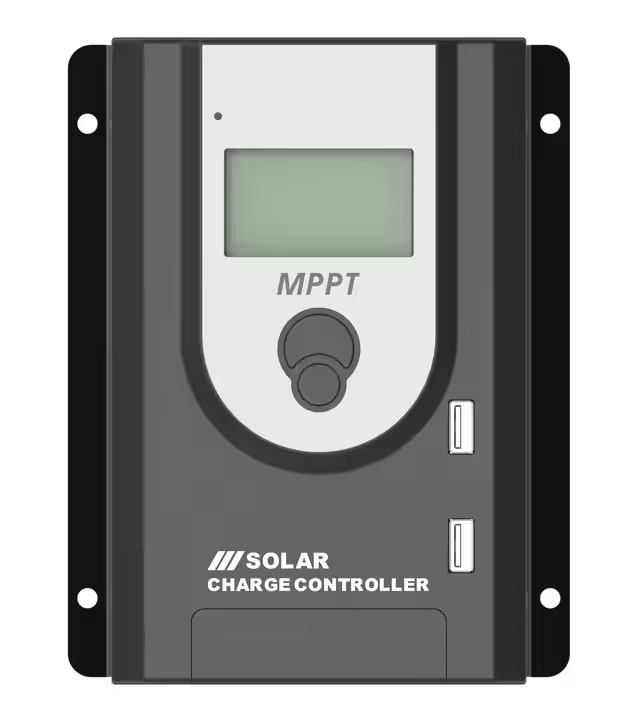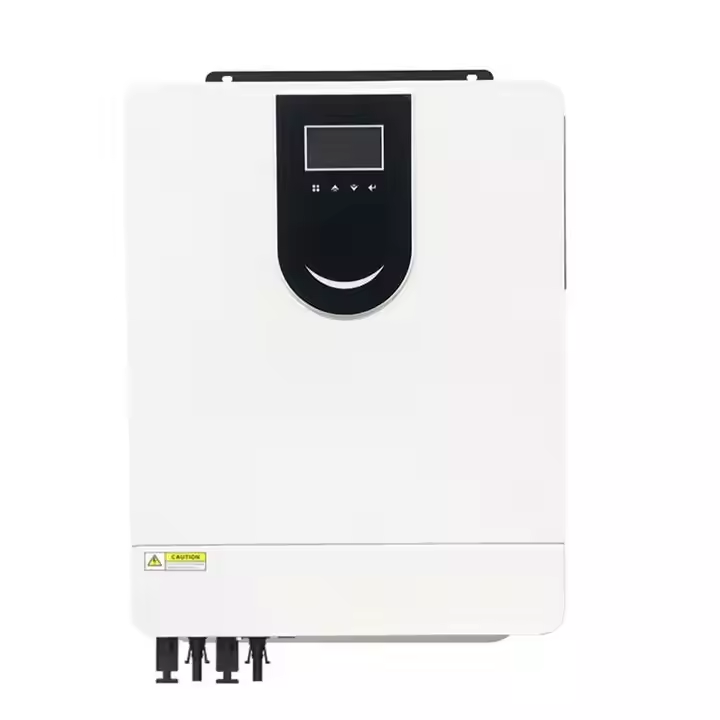I. Introduction
As homeowners increasingly seek energy independence and lower utility bills, the adoption of solar energy has never been more vital. In off-grid or hybrid solar systems, two key components play a critical role in managing your home’s renewable energy: the solar charge controller and the hybrid inverter. While both are essential, they serve different functions. This article will provide an in-depth comparison, helping you understand which option best fits your system needs and how to make the right choice for a reliable home energy solution.
II. Understanding the Components
A. Solar Charge Controllers
Solar charge controllers are devices that manage the power flow from solar panels to your battery bank. Their primary functions include:
Regulating Charging: Ensuring batteries receive the right voltage and current.
Preventing Reverse Current: Disconnecting panels at night to avoid battery drain.
Battery Protection: Preventing overcharge and deep discharge to extend battery lifespan.
There are two main types of solar charge controllers:
PWM (Pulse Width Modulation) Controllers: Simple, cost-effective options best for smaller or less complex systems.
MPPT(最大功率点跟踪)控制器:这些控制器更加复杂和高效,可以优化能量收集——非常适合较大或可变的系统。
B. Hybrid Inverters
Hybrid inverters convert the direct current (DC) generated by solar panels into alternating current (AC) for household use while managing battery storage. Key functions include:
DC to AC Conversion: Providing usable electricity for your home.
Energy Management: Combining solar generation with battery storage, they support both grid-tied and off-grid operation.
Backup Power: Enabling a seamless transition during grid outages and ensuring reliable power supply.
Hybrid inverters offer integrated energy management, smart connectivity, and advanced safety features that go beyond the capabilities of traditional inverters.
III. Comparing Solar Controllers and Hybrid Inverters
A. Primary Focus
Solar Charge Controllers:
Focus solely on regulating the charging of batteries, ensuring efficient energy storage, and protecting battery health. They are specialized for maintaining optimal performance in the battery charging process.Hybrid Inverters:
Provide a multi-functional approach by converting DC to AC, managing battery storage, and enabling grid-interactive operation. Hybrid inverters offer greater versatility by covering both energy conversion and backup functionalities.
B. Efficiency and Performance
Efficiency:
MPPT solar charge controllers can boost energy harvest by dynamically optimizing panel output, leading to higher overall system efficiency. In contrast, hybrid inverters focus on converting and managing energy with high conversion efficiency and the ability to switch seamlessly between energy sources.System Flexibility:
Hybrid inverters are capable of integrating with battery storage and the grid, offering versatility for homes that demand backup power during outages. Solar controllers, while effective in managing energy input, do not handle DC-to-AC conversion or grid interactions.
C. Application Scenarios
For Simple Off-Grid Systems:
A stand-alone solar charge controller might be sufficient when the primary goal is efficient battery charging in a low-energy demand environment.For Integrated, High-Performance Systems:
Hybrid inverters become essential in systems where homeowners want the benefits of both solar power conversion and reliable backup power, especially in areas with intermittent grid reliability.
IV. Key Considerations for Making the Right Choice
A. Assess Your Energy Needs
Consumption Analysis:
Evaluate your household’s daily and monthly energy usage to determine system size and load requirements.Future Growth:
Consider potential energy increases as you add new appliances or expand your home.
B. Technical Compatibility
Component Matching:
Ensure that your solar panels, battery bank, and selected device (controller or inverter) have compatible voltage and current ratings.System Size:
Choose a device that not only meets your current needs but allows for future expansion.
C. Cost and ROI
Initial Investment vs. Long-Term Savings:
Compare the upfront costs of standalone solar controllers and hybrid inverters against potential energy savings, extended battery life, and reduced maintenance costs.Incentives:
Explore available rebates, tax credits, and financing options to offset upgrade costs.
D. Installation and Maintenance
Ease of Installation:
Consider systems that are user-friendly and come with clear installation guides.Monitoring and Support:
Look for built-in monitoring features, remote management options, and strong manufacturer support to ease long-term maintenance.
E. Brand Reputation and User Feedback
Warranty and Customer Service:
Choose products from established brands with robust warranties and reliable after-sales service.User Reviews and Industry Certifications:
Research customer feedback and industry credentials to ensure product quality and performance.
V. Practical Recommendations
A. When to Choose a Stand-Alone Solar Charge Controller
Suitable for small-scale, off-grid systems with consistent sunlight.
Ideal if the primary goal is to efficiently charge a battery bank with minimal complexity.
B. When to Opt for a Hybrid Inverter
Best for integrated systems that require backup power and greater energy management flexibility.
Recommended for homes with higher energy demands or where grid connectivity is intermittent.
C. A Combined Approach
In some cases, using both a modern solar controller and a hybrid inverter can yield the best results for maximizing energy efficiency.
Ensure seamless integration and proper component matching to avoid redundancies and inefficiencies.
VI. Real-World Examples
A. Residential Example – Stand-Alone System
A homeowner in a remote area installed a high-efficiency MPPT solar charge controller. The improved charging management extended battery lifespan and provided reliable power, even during low-sunlight conditions.
B. Residential Example – Integrated System
In another case, a family upgraded to a hybrid inverter system that seamlessly managed battery storage and grid interaction. The system provided uninterrupted power during outages and achieved significant monthly energy savings.
C. Lessons Learned
Real-world case studies underscore the importance of matching system components accurately, investing in devices with smart features, and performing regular maintenance to ensure long-term performance and reliability.
VII. Conclusion
Deciding between a solar charge controller and a hybrid inverter depends on your specific energy needs and system complexity. Stand-alone controllers may suffice for simple off-grid setups, while hybrid inverters are better suited for integrated systems that require additional functionality, such as backup power and smart energy management. By carefully assessing your energy consumption, ensuring technical compatibility, and considering costs and long-term benefits, you can make an informed decision that future-proofs your home energy system. Ultimately, investing in the right technology will not only enhance efficiency and reliability but also offer substantial economic and environmental advantages.
VIII. Frequently Asked Questions (FAQs)
What are the main differences between solar controllers and hybrid inverters?
Solar controllers primarily manage battery charging and protection, while hybrid inverters combine DC-to-AC conversion with integrated energy storage management.How do I determine which option is best for my home?
Assess your current energy usage, system size, and whether you need backup power or grid integration. Consult with solar professionals to match the right components to your requirements.What are the cost implications of upgrading to a modern device?
While hybrid inverters may have a higher initial cost, their enhanced efficiency and additional features often result in long-term savings and higher system reliability.Can I use both a solar controller and a hybrid inverter in my system?
Yes, in some cases a combined approach can optimize performance, particularly if you want to fine-tune battery charging while also benefiting from advanced inverter functionalities.
Lorem ipsum dolor sit amet, consectetur adipiscing elit. Ut elit tellus, luctus nec ullamcorper mattis, pulvinar dapibus leo.





